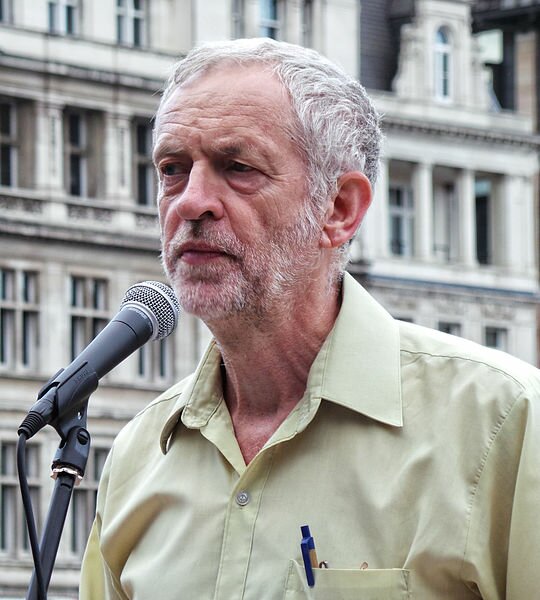The centre left seems to have been left behind by a society – or, more precisely, a number of societies spread across Western Europe – that appears to have fallen out of love with the promise of collective social protection and social progress. In this piece, Professor Matthew Flinders argues that the answer lies not in the notion of a ‘new left’ across Europe or in trying to develop a ‘new’ ‘New Labour’ in the United Kingdom. The answer lies in a fresh and bold focus on the social ties that bind communities together in the twenty-first century.
Centre-left social democratic parties appear to have been left behind in the last decade. “Early in this century you could drive from Inverness in Scotland to Vilnius in Lithuania without crossing a country governed by the right” The Economist highlighted just weeks ago “the same would have been true if you had done the trip by ferry through Scandinavia. Social democrats ran the European Commission and vied for primacy in the European Parliament.” But recently their share of the vote has plunged they have been left behind.
The challenge for anyone thinking about the future of social democracy is that we no longer have a vocabulary of politics that resonates with the broader public sphere. Even the title of this little piece – ‘Left Behind?’ – embraces an arguably tired and prosaic attachment to a notion of politics that remains tied to a ‘left-right’ spectrum. One might argue whether this ‘spectrum approach’ was every really capable of grasping the subtle complexities of political life – either at the personal, party, organizational or social level – let alone the innate irrationalities of political life itself with its inevitable mixture of messiness and compromise. A ‘new political project’ might from this perspective focus not simply on the concept of ‘the centre left’ but on the very nature of collective politics itself. This is the ‘new approach’ that offers huge potential in terms of redefining and revitalising democratic politics – a rejection of the defensive and callowed version of social democracy that currently exists in the wake of the global financial crisis.
The simple argument here is that any starting point in a discussion about revitalizing politics – and therefore society – cannot be rooted in conceptions of either ‘the left’ or ‘the right’ (or ‘the centre’). Such historical signposts are now too crude to grasp the social complexity that defines the twenty-first century. The research of Jonathan Wheatley, for example, suggests that the terms ‘left’ and ‘right’ are of little relevance to the contemporary electorate. “Evidently, left and right are amorphous concepts that mean different things to different people at different times’ Wheatley notes ‘Amongst younger, less well-educated and especially less politically interested users, items belonging to the economic scale were barely coherent at all. For these voters, the notions of ‘left’ and ‘right’, at least in economic terms, are really not meaningful at all”. The electoral basis of democracy therefore needs to be accepted not only in terms of its complexity but also in terms of the decline of monolithic class groups, the re-scaling of economic activity, combined with a shift towards single-issue or valence politics. The rise of political complexity therefore reflects a broader increase in social complexity
If I were being provocative I might dare to suggest that, at one level, there was no such thing as ‘the public’ because as any politician (or impact-engaged academic) knows there are in fact ‘multiple publics with whom it is necessary to engage in multiple ways’. This argument may have academic roots (in this case Michael Burawoy’s work on public sociology) but in many ways it speaks to the challenges faced by those thinkers, scholars, politicians and policy-makers who aim to craft a new political project for what really are new times. The challenge for any of the ‘mainstream’ political parties – or for any of the new ‘insurgent’ parties – is to learn how to engage with multiple audiences in multiple ways with a message that has resonance and meaning while also being accessible. From this perspective the ‘traditional’ parties too often appear like dinosaurs wandering aimlessly across the political savannah like prehistoric sleepwalkers who don’t really understand where they are going and why. The terrain, the savannah, has become more complex and yet the beasts remain incredibly cumbersome with their committees, conferences, headquarters and desiderata of an arguably earlier political age. The elements of this increased complexity are diverse, contested and inter-related (social media, increased public expectations, individualization, migration, etc.) but they culminate in a well-known focus on ‘the problem of democracy’ with its ‘disaffected democrats’ and ‘critical citizens’. (The irony for the Labour Party is that, as Andrew Gamble has argued, ‘the Corbyn effect’ was fuelled by anti-politics and populist sentiment within an established political party.)

Jeremy Corbyn. Image courtesy of Garry Knight via Flickr
One way of thinking about this problem – and possibly a solution – is to think of Zygmunt Bauman’s work on ‘liquid modernity’ which when stripped down to its core components emphasizes the decline in traditional social anchorage points (jobs for life, national identity, religion, marriage, close knit communities, trade unions, etc.). All that was once solid has apparently melted away and has been replaced with a hyper-materialism that ultimately leaves the public(s) frustrated. To make such an argument is to step back to C Wright Mills classic The Sociological Imagination (1959) and his arguments about ‘the promise’ and ‘the trap’. We have identified a perceived trap in the form of the decline of the centre left and the dominance of market logic across and within social relationships but where is ‘the promise’ in terms of a new vision possibly inspired by the insights of the social sciences that cuts across traditional partisan lines?
Politicians make promises but the public no longer perceives that these promises are ever delivered, or fail to understand exactly why – as Bernard Crick argued – democratic politics tends to be so messy. Politicians have no simple solutions to complex problems and nor do I in this short piece. And yet, as a way of generating a discussion, I would suggest that ‘the promise’ of social democratic politics will only be achieved when three elements are secured:
- a clarity in terms of not only a stable vision of why ‘working together’ through collective endeavours matters but also in terms of how it can provide meaning, clarity, control and choice;
- a confidence in terms of a positive political narrative that inspires belief and hope, and redefines specific ‘threats’ as opportunities; and,
- a clear and confident ‘language of politics’ that is not defensive or defined by the past, that makes no mention of Guild Socialism, Golden Ages, Fabianism, Richard Crossman, ‘Lefts’ and ‘rights’, etc.
The challenge for the Labour Party in 2020 already looks greater than it did in 2015, not least because the party too often appears engulfed in (internal) tribalism within an increasingly post-tribal world. The challenge for a future political leader is to reject and re-frame the dominant anti-political sentiment for the simple reason that it is rarely anti-political in nature and more accurately interpreted as frustration with the current system. Redefining ‘anti-politics’ as ‘pro-a-different-way-of-doing-politics’ lies at the heart of any new political project that seeks not to be left behind.
Biography
Please note that this article was originally published by Oxford University Press’s Academic Insights for the Thinking World Blog.
This article gives the views of the author, and not the position of the Crick Centre, or the Understanding Politics blog series. To write for the Understanding Politics blog email us at [email protected]




